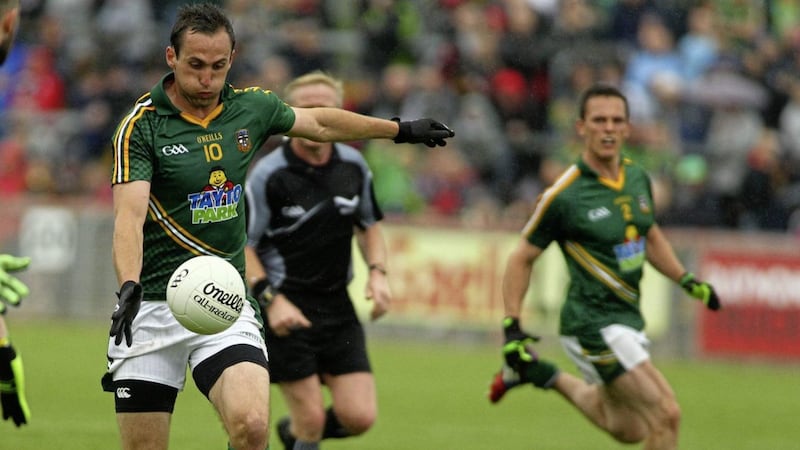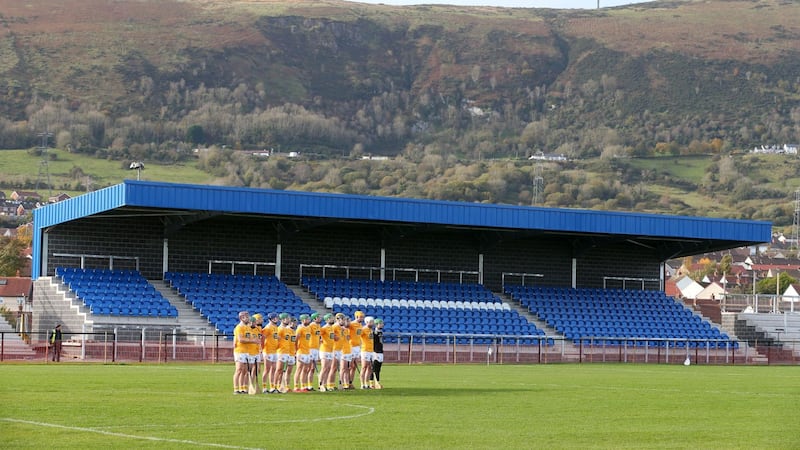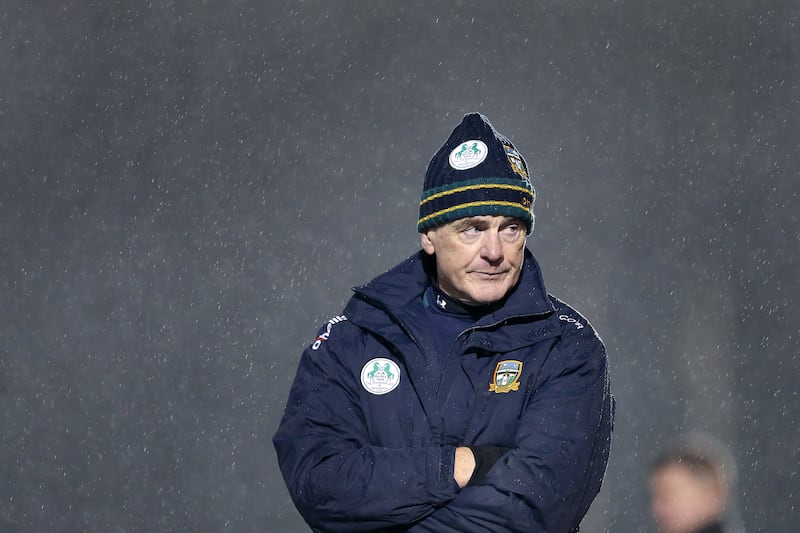I'm only happy when it rains
I'm only happy when it's complicated
And though I know you can't appreciate it
I'm only happy when it rains
Garbage.
That's not just the name of the band which performed that song, but a description of a particular mindset in sports analysis.
Meath racked up 27 (TWENTY-SEVEN) scores on Sunday, running out victors by nine points over Louth.
The Royals outdid their opponents by 0-14 to one score (albeit a goal) in the last 20-odd minutes of the match.
So it was bizarre to hear RTE commentator Marty Morrissey declare at the final whistle: "Meath get across the line". Yep, just three kicks of the ball between the teams and extra time…
Later on `The Sunday Game' pundit Pat Spillane must have been scratching his head to come up with this gem of nit-picking, saying: "If there's one negative from their attacking display it's the fact that they didn't score a goal – and they certainly had four clear goal-scoring chances. But look, it's something to work on."
Spillane, to be fair to him, had been effusive in praise of Meath, commenting that they "looked very, very impressive", that their "forward display was absolutely magnificent", and described the match as "a lovely, open game of attacking football where both times set out to win the game by trying to out-score the other".
Yet he still felt the need to seek out some flaw in Meath's performance.
Spillane is far from on his own in that approach.
There's an unwillingness to praise too much, or be too positive, as if positivity equates to naivety.
No one was suggesting that the Royals would be bringing the Sam Maguire north out of Dublin this September – although Meath legend Colm O'Rourke did point out that they'd win the All-Ireland if they kept scoring that much. He was smiling as he said it, of course, and why wouldn't he be?
His county had racked up a huge total – but others were quick to rain on Meath's parade, even those of Royal blood.
Far too open, they moaned.
There was that same element of disappointment from some that the first half of Down-Armagh had goal chances aplenty.
Clearly you can legitimately pose the question why the Royals shipped three goals, and some did point fingers at the Meath full-back line – but two of the goals were freaks really.
The first came from a penalty awarded for a stupid, unnecessary challenge by full-back Conor McGill.
The second followed a brain-burp by goalkeeper Paddy O'Rourke, who skewed a dreadful short kick-out and then appeared to lose his bearings, letting a shot loop into his net.
Another aspect of complaint was that 'They won't find it as easy against Kildare' (in the forthcoming Leinster SFC semi-final).
These sorts wanted Meath to be much more defensively disciplined.
The irony is that this sort of criticism comes from those who also tend to declare 'You have to do whatever it takes to win'.
Well, Meath won by scoring an absolute shed-load. Good on them.
In all probability they won't score as much the next day, maybe never again, but so what?
The 'That won't do the next day' attitude is one that will never be satisfied, unless their team ends up being the one that ultimately wins the trophy. A pessimist is never disappointed.
These sort of people complain that the sun is too hot and seem to be only counting the hours until the rain comes again.
Yet surely it's better to enjoy the moment rather than worrying about potential troubles to come?
It's almost as if teams can't win, even when they do – and do so very well, as Meath did on Sunday.
This isn't a call for every team to play like Meath did in Parnell Park. Different games demand different approaches, which is why any criticism of Carlow's policy of containment against Dublin was so strange.
Carlow didn't lose because they played negative, defensive football; they lost because Dublin are far better than them, because Dublin are far better than most counties.
Defending isn't all bad, but nor is attacking.
If people, and pundits, truly want a more positive game then they should wholeheartedly praise positive football rather than looking for something to moan about.







